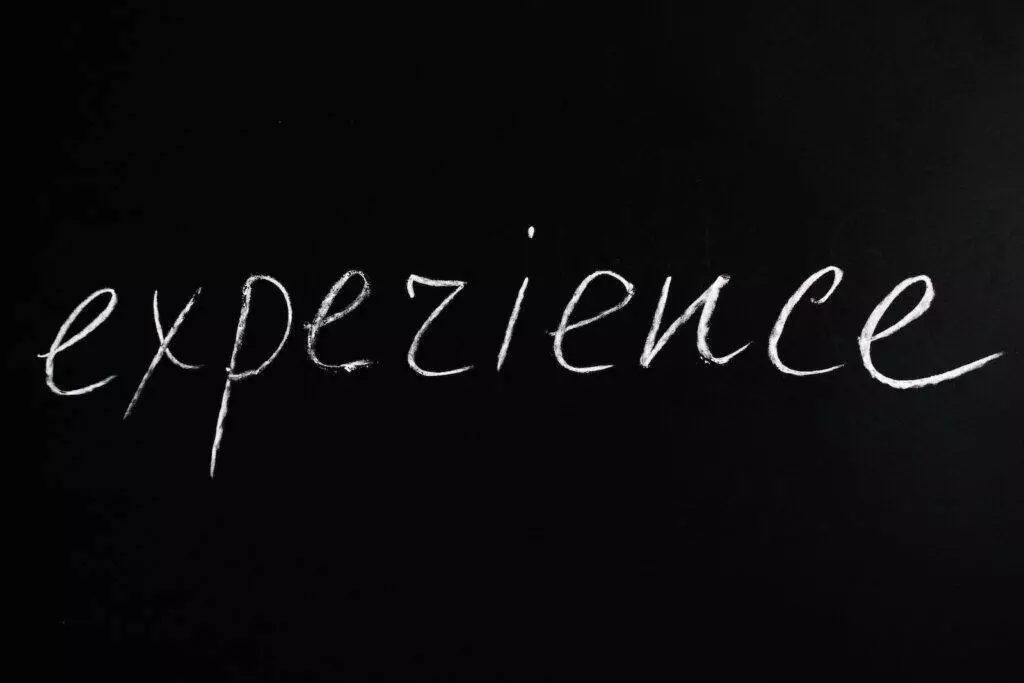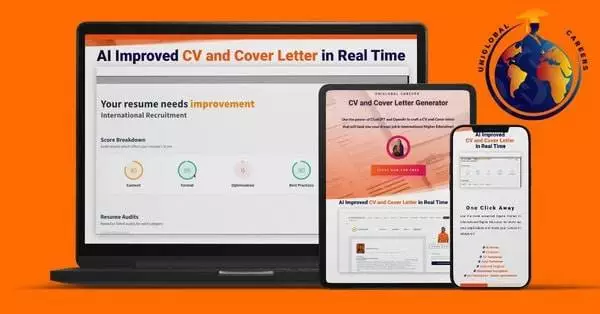If you’re a teacher looking to make a career change, you might be wondering if international education is the right path for you. Making the transition can seem daunting at first, but with the right mindset, skills, and experience, it’s certainly achievable. In this article, we’ll take a deep dive into the world of international education, assess your potential fit, and guide you through the steps of the job search process. By the end, you’ll have a clearer understanding of what it takes to make a successful transition.
Understanding the World of International Education
Before you make any decisions, it’s important to educate yourself on what international education really entails. This field can encompass a variety of roles, from teaching abroad to managing study abroad programs and everything in between. Here are a few points to consider:
What is International Education?
At its core, international education involves creating opportunities for individuals to expand their knowledge and experiences beyond their own borders. It could involve teaching English as a second language to students in a foreign country, leading study abroad programs for American university students, or working in a cross-cultural educational setting. International education is also about fostering global citizenship and promoting intercultural understanding.
International education is becoming increasingly important in today’s globalized world. With the rise of technology and the ease of travel, people from different countries are interacting with each other more than ever before. This has created a need for individuals who are able to navigate cross-cultural communication and work effectively with people from diverse backgrounds.
Types of Jobs in International Education
Depending on your interests and qualifications, there are many different types of roles you can pursue in international education. These include positions in language instruction, curriculum development, program management, admissions, and more. It’s important to take stock of your own skill set and determine which positions align with your strengths and goals.

If you have a passion for teaching, you might consider pursuing a career as an ESL teacher or a language instructor. These roles involve teaching students who are non-native speakers of a language, and can be very rewarding. If you’re more interested in program management, you might consider working for a study abroad provider or a university’s international programs office. These roles involve coordinating logistics for study abroad programs and ensuring that students have a positive and safe experience while abroad.
The Benefits of Working in International Education
The advantages of working in international education are many, from the personal fulfillment of gaining new cultural experiences to the professional development of learning new languages and teaching styles. Plus, many positions come with travel opportunities and the chance to positively impact the lives of students and colleagues alike.
Working in international education can also help you develop a global perspective and become a more effective communicator. By working with people from different backgrounds, you’ll learn to navigate cultural differences and build bridges between different communities. These skills are valuable not just in the field of international education, but in any career that involves working with people from diverse backgrounds.
Overall, international education is a dynamic and exciting field that offers a range of opportunities for personal and professional growth. Whether you’re interested in teaching, program management, or another aspect of the field, there’s sure to be a role that aligns with your skills and interests.
Assessing Your Skills and Experience
Once you have a solid grasp of the industry, it’s time to assess your own qualifications and determine what transferable skills you can bring to the table.

International education is a highly competitive field, and having a thorough understanding of your own skills and experience can help set you apart from other candidates. Take the time to reflect on your past experiences and identify the strengths that make you a valuable asset to any international education team.
Identifying Transferable Skills
The skills and experience you gained as a teacher can be highly valuable in international education. For instance, your classroom management and lesson planning abilities may transfer well to a curriculum development position. Your experience with diverse student populations can make you a strong candidate for a program management role.
However, don’t limit yourself to only the skills you gained through teaching. Your experience in other areas, such as marketing, finance, or project management, may also be useful in international education. Take the time to analyze your strengths and see how they fit within international education.
Gaining Relevant Experience
Depending on the position you’re interested in, you may need to gain some additional experience or education. This could include getting ESL certification or pursuing a degree in education or international studies.
One way to gain experience is through volunteer work. Many organizations offer opportunities to work with international students or to teach abroad. Not only will this give you valuable experience, but it will also demonstrate your commitment to the field.
Internships and part-time teaching positions are also great ways to gain experience and make connections in the field. Look for opportunities to work with organizations that align with your interests and goals.
Building Your International Education Network
Networking is key in any job search, but it’s especially important in international education where personal connections can lead to career opportunities.
Attend conferences and workshops to learn about the latest trends and best practices in the field. Join professional associations, such as NAFSA or the Forum on Education Abroad, to connect with others in the field and stay up-to-date on industry news.
Don’t forget about the power of social media. LinkedIn is a great platform to connect with professionals in your field and to showcase your skills and experience. Join relevant groups and participate in discussions to expand your network.
By building your network, you’ll gain valuable insights and potentially even meet future employers. Don’t be afraid to reach out to professionals in the field to ask for advice or to learn more about their career paths.
Preparing for the Job Search
With your skills and experience in mind, it’s time to start searching for international education jobs. Here are a few tips to keep in mind:

Tailoring Your Resume and Cover Letter
Just like any job search, you’ll need to tailor your application materials to the positions you’re applying for. Highlight your relevant experience and skills and make sure to showcase your passion for international education.
When tailoring your resume and cover letter for international education jobs, it’s important to highlight any experience you have working with diverse populations. This could include studying abroad, teaching English as a second language, or volunteering with international organizations. Additionally, be sure to emphasize any language skills you have, as these are highly valued in the international education field.
Networking in the International Education Community
As mentioned earlier, networking is crucial in international education. Research job fairs and conferences, reach out to alumni from your university or previous job experience, and set up informational interviews with professionals in the field. Be persistent, and don’t be afraid to ask for introductions or advice.
Attending conferences and job fairs is a great way to meet other professionals in the international education community. These events often feature workshops and sessions on topics such as cross-cultural communication, study abroad programs, and international student recruitment. Additionally, they provide an opportunity to network with potential employers and learn about job openings in the field.
Utilizing Job Boards and Professional Associations
There are many resources available for finding international education jobs, including job boards and professional associations. Make sure to research these options and see which ones might be the best fit for you. Examples include the International Education Association, GoAbroad, and StudyAbroad.com.
When using job boards and professional associations, it’s important to read job descriptions carefully and only apply for positions that align with your skills and experience. Additionally, consider joining professional associations such as NAFSA: Association of International Educators or the Forum on Education Abroad, which provide networking opportunities, professional development resources, and job listings.
By following these tips, you’ll be well on your way to finding a fulfilling career in international education.
Acing the Interview Process
Securing an interview is a great accomplishment, but it’s only the first step towards landing your dream job. To make sure you’re ready for the interview process, it’s important to prepare thoroughly and strategically.
Researching the Organization and Position
Before you go into an interview, it’s essential that you research the organization and position you’re interviewing for. This will help you understand the company’s mission, vision, and values, and enable you to explain how your skills and experience align with their goals.
Take the time to read the company’s website, social media pages, and any other relevant information you can find. Look for recent news articles or press releases about the company to stay up to date with their latest developments. This will not only help you prepare for the interview, but it will also demonstrate your interest in the organization and your commitment to the industry.
Preparing for Common Interview Questions
Another important aspect of interview preparation is practicing your responses to common interview questions. This will help you feel more confident and prepared during the actual interview.

Some common questions you might encounter during an interview for an international education position include:
- “What interests you about this particular position?”
- “How have you worked with diverse populations in the past?”
- “What are your long-term career goals in the field of international education?”
When answering these questions, be sure to provide specific examples that showcase your qualifications and passion for the field. Use your research on the organization and position to tailor your responses to the specific needs and goals of the company.
Showcasing Your Passion for International Education
Finally, it’s important to emphasize your passion for international education during the interview process. Hiring managers want to see that you’re committed to the field and eager to learn more.
You can showcase your passion for international education by talking about your past experiences working with students from diverse backgrounds, discussing your involvement in international education organizations or events, or sharing your long-term goals for making a positive impact in the industry.
Remember, the interview process is your chance to demonstrate why you’re the best candidate for the job. By researching the organization and position, preparing for common interview questions, and showcasing your passion for international education, you’ll be well on your way to acing your next interview.
Conclusion
With these steps in mind, you can make a smooth transition from teaching to a career in international education. By understanding the industry, assessing your skills, and preparing for the job search, you’ll be well on your way to finding a fulfilling and rewarding position. Good luck!


